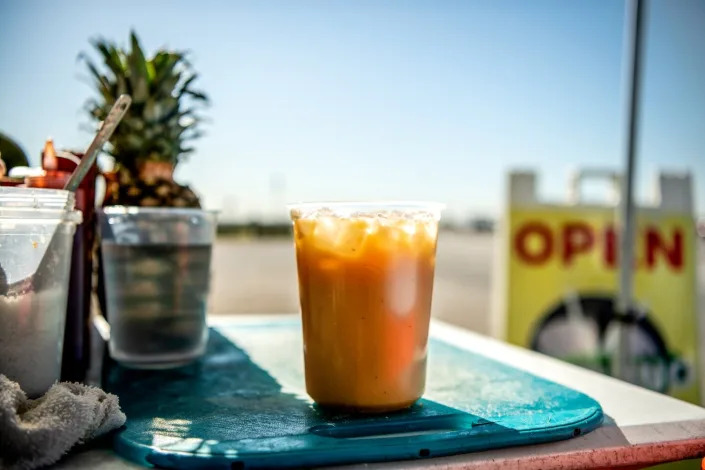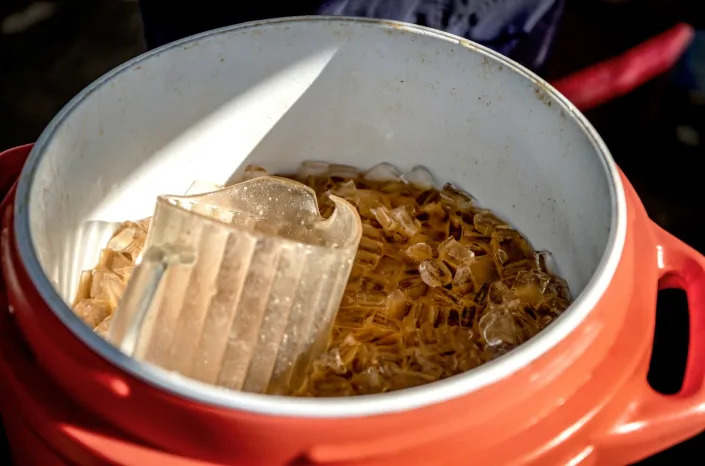
Evelyn Flores, a roadside vendor in the Whittier Narrows, sparks up with mischief as she prepares the drink that her family has been selling from the same spot for decades: tejuino, a rustic beverage from Mexico.
First, she grabs a large foam cup and rams it with ice; then she squeezes the juice from several limes into the cup and adds a spoonful of salt. Next, Flores pops open a barrel-sized container filled with a slushy brown liquid. She dunks a mug inside to stir it around, fills the mug and then transfers the fluid into the foam cup and back again, mug and cup, cup and mug, swishing and sloshing.
Already, from a few feet away, the funky smell of the drink reaches me.

Tejuino, from the western region of Mexico, is a fermentation of maíz with piloncillo, or Mexican brown sugar. After a few days in water, the yeasts involved turn the mixture into a brown, almost milky mush. In the city of Guadalajara and at roadside stands in the states of Jalisco, Nayarit and Colima, tejuino is served with big chunks of ice, lime juice and sea salt. Sometimes vendors drop in a scoop of lime sorbet, which bleeds into the liquid with wisps of neon green.

I take a sip. It is sour but refreshing, slightly fizzy in texture.
“It’s good, right?” asks Flores, 28, in an upward-sounding Eastside accent.
“It’s so good,” I say reflexively.
Most people outside Mexico are familiar with the country’s tradition of distillates and beers. Far fewer have experienced an entirely different galaxy of beverages, like tejuino, that are much less available here in Southern California. They are made with Indigenous-based practices, typically inside people’s homes, usually with a plant, like corn, that’s already used for a bunch of other things in Mexico.
Click here for the original, complete article on The LA Times



